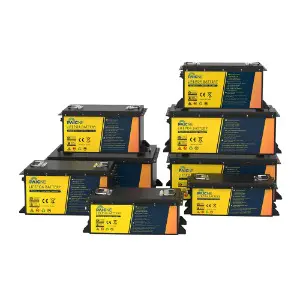Battery safety is a primary concern for any application, from electric vehicles to energy storage systems. One of the critical risks is thermal runaway, a condition in which internal heat generation accelerates uncontrollably, potentially causing fires or explosions. Understanding how a Lithium Iron Phosphate Battery responds to short-circuit or overcharge scenarios is essential for engineers and end-users seeking safe, reliable energy storage solutions.

Chemical Stability and Thermal Characteristics
Lithium Iron Phosphate batteries are chemically more stable than many other lithium-ion chemistries. The phosphate-based cathode structure provides inherent thermal stability, reducing the likelihood of decomposition at elevated temperatures. During overcharge or short-circuit events, the robust chemical bonds in LiFePO4 cells reduce the risk of exothermic reactions that can cause catastrophic failure. This fundamental stability makes these batteries less prone to thermal runaway compared to lithium cobalt oxide or nickel-based chemistries, which are more sensitive to overvoltage and heat generation.
Behavior Under Short-Circuit Conditions
Short circuits cause a sudden surge of current that generates heat within the cell. For many lithium-ion batteries, this can trigger internal reactions, causing rapid temperature rise and potential thermal runaway. Lithium Iron Phosphate batteries, however, exhibit lower internal resistance and greater structural integrity, allowing them to handle short-circuit currents more safely. While short-circuit conditions can still damage the cell or trigger localized heating, the overall design and chemistry of LiFePO4 significantly reduce the risk of a full thermal event, providing a higher margin of safety in high-current fault conditions.
Response to Overcharging
Overcharging is another common scenario that can stress batteries. Excessive voltage can cause decomposition of the electrolyte and produce gas, potentially causing swelling or rupture. LiFePO4 cells are engineered to tolerate slight overvoltage without initiating aggressive exothermic reactions. Additionally, modern implementations include battery management systems (BMS) that actively prevent overcharge by monitoring voltage and current, further mitigating risks. Even when overcharging occurs, the thermal stability of the cathode material and the design of protective mechanisms substantially reduce the likelihood of catastrophic thermal events.
Role of Battery Management Systems and Protective Features
Battery management systems are critical for preventing thermal runaway in real-world applications. By continuously monitoring voltage, current, and temperature, a BMS can shut down charging or discharging when abnormal conditions are detected. LiFePO4 batteries often incorporate additional features such as pressure relief valves, thermal fuses, and reinforced casing. These measures work in tandem with the inherent chemical stability to maintain safety even under adverse events like overcharge or short-circuit conditions, ensuring reliability for devices ranging from electric vehicles to renewable energy storage systems.
Practical Implications for Safety and Reliability
In practical applications, Lithium Iron Phosphate batteries demonstrate a low incidence of thermal runaway under both short-circuit and overcharge scenarios. Field tests in electric vehicles, industrial tools, and stationary energy systems confirm that, while careful design and monitoring are essential, the risk of catastrophic thermal events is significantly lower than with other lithium-ion chemistries. Users benefit from reduced fire hazards, longer operational life, and greater confidence in high-current or high-voltage environments.
Lithium Iron Phosphate batteries provide an inherently safer option for energy storage under conditions, such as short circuits or overcharging. The chemical stability of the phosphate-based cathode, combined with engineered protective measures and integrated battery management systems, reduces the risk of thermal runaway. For applications where safety is paramount, including transportation and industrial power systems, LiFePO4 technology offers a reliable and thermally stable solution, balancing performance with robust safety characteristics.
Get to know quickly
We are a professional lithium iron phosphate battery, solar energy storage system, industrial and commercial energy storage system manufacturer.
 +86-133 3592 3377
+86-133 3592 3377
 +86-4008833583
+86-4008833583
 Email: [email protected]
Email: [email protected]

Copyright © Zhejiang Paichen Energy Storage Group Co., Ltd All Rights Reserved.
Battery Energy System Manufacturer
